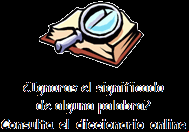 We often need to tell others what someone else said. There are two ways to do this. One is to say the same words and use quotation marks. That is "direct speech." The other method is to summarize, or tell about what someone said. This is called "reported speech." We often need to tell others what someone else said. There are two ways to do this. One is to say the same words and use quotation marks. That is "direct speech." The other method is to summarize, or tell about what someone said. This is called "reported speech."
Before we get into the rules for reporting speech, here are the we are using to explain it.
In the sentence, "She said that she wanted a cookie," 'she' is the subject, 'said' is the reporting verb, 'that' is the conjunction and 'she wanted a cookie' is the reported speech clause.
Rules for reporting speech
To get this kind of sentence right, there are four things you should keep in mind:
The first rule is to choose a reporting verb and tense.
When did the speech happen? With current, repeated or recent events, the reporting verb is in the present tense. "He says he is hungry, so let's go to lunch." A habitual or repeated statement is in the present tense: "Everyone says the water is safe to drink." For reporting less immediate speech, choose the past tense. The reporting verb is often said, but it can also be told, or other verbs like ordered, stated, or reported, depending on the situation. When reporting questions, you can use verbs like asked or requested.
The second rule is to change the perspective, or point of view.
That means I becomes he, she, or they.
"Mary said 'I ate the pie."' becomes
"She said that she ate the pie."
"The boys said, 'We are coming tomorrow'" becomes
"They said they are coming tomorrow."
Next, choose whether to include "that or "if."
You can say, "He says he is at home" or "He says that he is at home." That is a conjunction here, linking the two parts of the sentence. It is optional. Another conjunction, if, is required when reporting on a question: "He asked me if I knew how to play tennis."
The fourth rule is to "backshift" the tense.
This is the trickiest part of reported speech. When the reporting verb is in the past tense, the verb in the reported clause is in the past tense, too. The verb aspect, showing whether the action is completed, matches. Here are some examples:
"I am buying my ticket." (present continuous)
-> He said he was buying his ticket. (past continuous)
Ashley: "I have fixed my bicycle." (present perfect)
-> She said she had fixed her bicycle. (past perfect)
Reporting speech in English would be easy if these rules were all learners needed to know. But as usual, there is more to learn. Let's look at what happens with questions and modals.
Reporting on questions
When we report questions, we have to pay attention to the auxiliary verb. These are words like do, be, and have. Yes or no questions begin with an auxiliary, such as
"Do you like pizza?"
To report that question, drop the auxiliary and add if:
He asked me if I liked pizza.
Learners often make the mistake of leaving the auxiliary verb in the reported speech: He asked me do I like pizza.
Don't say it like that! That is a mistake.
Information questions start with a question word:
"Where are you going?"
To report on these, simply change the pronoun and word order.
She asked me where I was going.
Here, learners often make the mistake of keeping the same word order: She asked me where was I going.
Don't say it like that! That is a mistake.
A similar word order switch appears with the verb "be" in questions.
They asked, "When is the party?"
-> They asked me when the party was.
The question word "when" remains. "Be" moves from a position before the noun to after the noun.
Reporting speech with modals
Finally, pay attention to whether the speech you are reporting uses a modal verb. Will, can, and shall change to would, could, and should when reported. Will is used to make statements about the future in English. When reporting this kind of statement, will becomes would. Compare these sentences:
Kelly said, "I will pick up the sandwiches."
-> Kelly said she would pick up the sandwiches.
Modal verbs may appear in questions, as well:
Caty asked, "Can you answer the phone while I'm out?"
-> Caty asked me if I could answer the phone while she was out.
If the modal verb is already in its past form, it does not change when reported.
George stated, "I would not do that."
-> George said he would not do that.
Test your knowledge
Let's try a few sentences. I'll say the direct speech, and you make a sentence in reported speech.
Our boss said, "You can all go home early today."
-> Our boss said we could all go home early.
Anna asked "When is your birthday?"
-> Anna asked me when my birthday was.
Adam said, "I am leaving on Tuesday."
-> Adam said he was leaving on Tuesday.
Chris said, "I will bring the cake."
-> Chris said he would bring the cake.
|
 Sugerencias:
Sugerencias:![]() ). Utiliza el botn derecho del ratn y "guardar enlace" para descargar el fichero a tu PC, tablet, Smartphone, etc.
). Utiliza el botn derecho del ratn y "guardar enlace" para descargar el fichero a tu PC, tablet, Smartphone, etc.
![]() Escucha el audio
Escucha el audio



